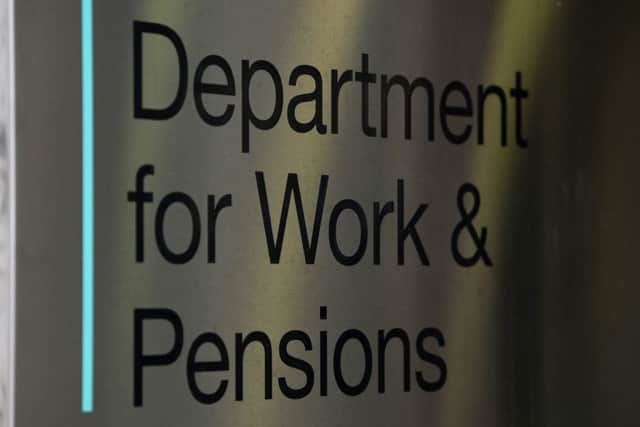Universal Credit: Nearly 1,500 people in Mid Sussex have been moved onto scheme
and live on Freeview channel 276
The Joseph Rowntree Foundation says the new benefits system could represent a positive change, but in its current form risks pushing people on low incomes into financial trouble.
| See how the number of people on Universal Credit compares across Sussex – Adur; Arun; Brighton and Hove; Chichester; Crawley; Eastbourne; Hastings; Horsham; Lewes; Rother; Wealden; Worthing |


Advertisement
Hide AdAdvertisement
Hide AdDepartment for Work and Pensions figures show 1,455 benefit claimants in Mid Sussex had been moved onto Universal Credit by the middle of last month – six times the number of people enrolled on it in September 2017.
The Government plans to fully implement its flagship welfare system by the end of 2023 – it was originally due to be up and running by April 2017.
Under the scheme, six different types of benefits are being rolled into one monthly payment, including jobseekers’ allowance and working tax credit.
Of those who had been moved to the scheme in Mid Sussex last month, 44 per cent were in employment.
Advertisement
Hide AdAdvertisement
Hide AdAcross the country, more than 1.5 million people have so far been moved on to Universal Credit.
The Joseph Rowntree Foundation said its own numbers suggest a further 1.7 million will be transferred in the next year. While claimants are not actively being transferred to Universal Credit, anybody with a change in circumstances, for example a change in employment, will be moved.
Helen Barnard, from the charity, said: “At the minute, I think we are getting false nostalgia for the old system. Actually, it is being changed for a reason.
“The figures we have show that there are a large number of people who will gain from transferring onto the new system.”
Advertisement
Hide AdAdvertisement
Hide AdHowever, Ms Barnard pointed to the five-week wait before payments begin, child care payments being made in arrears and housing benefits being paid to claimants, rather than landlords, as issues with the new system.
Talking about the wait, she said: “People on low incomes most often have no savings or very low savings. Some people simply end up going without essentials – going without food or whatever they can.
“The Government’s response to a lot of this has been that they offer advances, but having to pay back debt is one of the things which pushes people into the worst levels of poverty.”
A Department for Work and Pensions spokesman said: “Universal Credit is a force for good for the vast majority with people moving into work faster and staying in work for longer.
Advertisement
Hide AdAdvertisement
Hide Ad“We have made numerous improvements, including increasing advances to 100 per cent, removing the seven-day waiting period and paying people’s housing benefit for two weeks while they wait for the first payment.
“Working parents can claim back up to 85 per cent of eligible childcare costs and housing costs can be paid directly to landlords where requested.”
• Report by Joseph Hook, data reporter
---